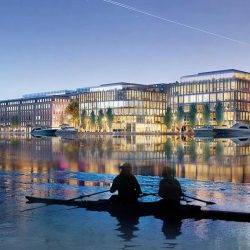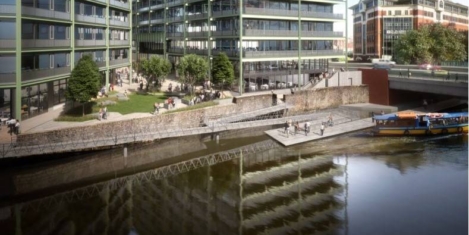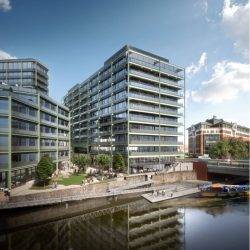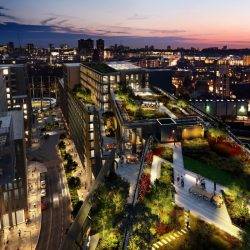May 1, 2019
“First ever” dedicated UK India tech hub opens at Royal Albert Dock London
 A newly delivered building at Royal Albert Dock (RAD) in London has been launched as the UK India Tech Hub to provide a designated space for technology firms from India and the UK. It is claimed to be the first venture capital fund that has partnered with a business district to create a tech hub anywhere the world. Under the partnership agreement, developer ABP London and investors Pontaq will provide technology firms with work space while Pontaq’s tech fund will be invested in tech start-ups to assist them to develop and expand. India High Commissioner, Ruchi Ghanashyam, and Under Secretary of State at the Department for International Trade, Graham Stuart MP, along with Mayor of Newham Rokhsana Fiaz, witnessed the signing of an agreement between Royal Albert Dock developer ABP London and the venture capital firm Pontaq. (more…)
A newly delivered building at Royal Albert Dock (RAD) in London has been launched as the UK India Tech Hub to provide a designated space for technology firms from India and the UK. It is claimed to be the first venture capital fund that has partnered with a business district to create a tech hub anywhere the world. Under the partnership agreement, developer ABP London and investors Pontaq will provide technology firms with work space while Pontaq’s tech fund will be invested in tech start-ups to assist them to develop and expand. India High Commissioner, Ruchi Ghanashyam, and Under Secretary of State at the Department for International Trade, Graham Stuart MP, along with Mayor of Newham Rokhsana Fiaz, witnessed the signing of an agreement between Royal Albert Dock developer ABP London and the venture capital firm Pontaq. (more…)



















 UK-based
UK-based 














April 23, 2019
The flexible solution to workplace loneliness
by Guzman de Yarza Blache • Comment, Flexible working, Wellbeing, Workplace design
(more…)